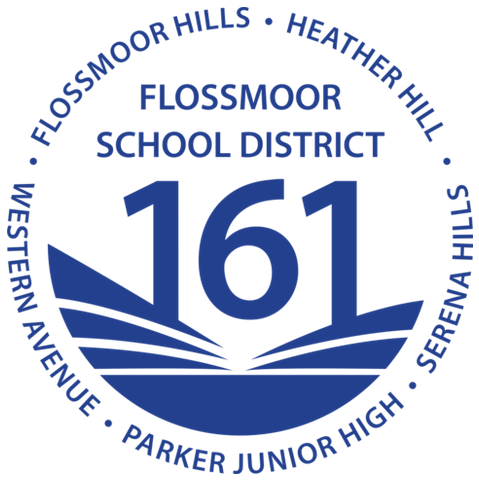SPECIAL EDUCATION INFORMATION
Parent Notification Related Service Logs HB 3586
Updated Parent Procedural Safeguards
Updated Parent Procedural Safeguards Spanish
ISBE - Special Education Services The Parent Guide
Interpretation Services Parent Notification
Interpretation Services Parent Notification (Spanish)
FAMILY RESOURCES
Understanding PUNS - Spanish (pdf)
Achieving a Better Life Experience
Good Shepard Respite Care Brochure
Easter Seals Home-Based Early Head Start
Center for Parent Information and Resources
Early Childhood Special Education
IDEA Proportionate Share Services for Parentally Placed Nonpublic Students with Disabilities
SPECIAL EDUCATION/504
STUDENT SERVICES INFORMATION
The Special Education Department aims to improve student's educational experiences through collaboration with families, schools, students, and community parents. An array of comprehensive supports is coordinated to support every child's academic, social-emotional, and behavioral success. The Special Education Department encompasses Pre-K, Early Childhood, Special Education, Student Health Services, and a Multi-Tiered Support System.
Preschool for All Program:
Students qualify for the Preschool for All Program by attending Preschool Screenings throughout the school year. Through screening, staff can determine if a student is at risk of academic failure and qualifies for the grant-funded Preschool for All Program. All screenings occur at the District Office, 41 E. Elmwood Dr., Chicago Heights, IL.
Click here for upcoming screening dates.
Early Childhood Program
The Early Childhood Program provides specially designed instruction to eligible students ages 3 through 5. A speech-language pathologist, occupational therapist, and physical therapist provide integrated related services.
Multi-tiered System of Support (MTSS)
MTSS is a data-driven, problem-solving framework that improves student outcomes. It relies on a continuum of evidence-based practices matched to students' academic and behavioral needs.
504 Information
A student is considered "qualified" under Section 504 if the student is between the ages of 3 and 22 and has a disability, defined as a physical or mental impairment that substantially limits one or more major life activities. Major life activities include caring for oneself, walking, seeing, hearing, speaking, breathing, working, performing manual tasks, and learning. Some examples of impairments that may substantially limit major life activities, even with the help of medication, aids, or devices, are attention deficit hyperactivity disorder (ADHD), asthma, allergies, blindness or a visual impairment, deafness or hearing impairment, diabetes, epilepsy, heart disease, and mental illness.
Special Education
When students are identified as eligible for special education services, an Individual Education Plan (IEP) is developed for the areas of need. The Individual Education Plan (IEP) includes the following major components:
Present Levels of Educational Performance (includes a summary of a student's levels of performance in areas of need)
Goals and Objectives/Benchmarks (goals are identified for areas requiring specially designed instruction that have an adverse effect on a student's learning)
Educational Accommodations (specifies supports the student needs to make progress towards their goals and to access the general education curriculum)
Assessment Accommodations (specifies supports needed for the student to perform to their best ability on assessments)
Services and Placement (specifies the type of special education services the student requires). Special education services may include, but is not limited to the following: instruction from a special education teacher, speech/language services, occupational therapy services, physical therapy services, and social work services
Extended School Year (ESY) (recommendation for the student to continue instruction during the summer period to maintain skills)
Continuum of Services for Students with Disabilities
Instructional Services - Students who need academic or collaborative services with related services staff for a majority of the day (over 50%) or need a replacement curriculum may be served by an instructional teacher who primarily provides pull-out services (in a special education classroom).
Resource Services - Students who need academic support for less than most of the day may receive push-in or co-teaching services (within a general education environment) or pull-out services from a resource teacher.
Outplacement - Placement in a specialized setting is made when a student’s needs cannot be adequately met in the public school setting. These placements are made locally in public and state-approved private day facilities.
Home/Hospital Instruction - Students who experience medical conditions that warrant their non-attendance in a school setting for at least 10 days and provide medical certification for an approved provider may receive services within the home or hospital setting.
Related Services
Speech and Language Services - Students who exhibit delays in articulation, expressive and/or receptive language skills, vocabulary, fluency, and/or vocal difference deficits that adversely affect student performance may be eligible to receive speech and language therapy services.
Physical/Occupational Therapy - Students with educational needs related to sensory regulation and gross and fine motor skills may be eligible for physical or occupational therapy services.
Social Work - All schools have social workers on staff to support the social-emotional well-being of all students in general and special education through group, individual, and consultative services.
Student Health Services
The District Nurse and School Health Coordinators work closely with families, students, teachers, and administrators to ensure quality, individualized, and responsive health services are provided to students.
Please contact Jackie Janicke, Director of Special Education, at jjanicke@sd161.org or 708-647-7028 if you have any questions or concerns.
